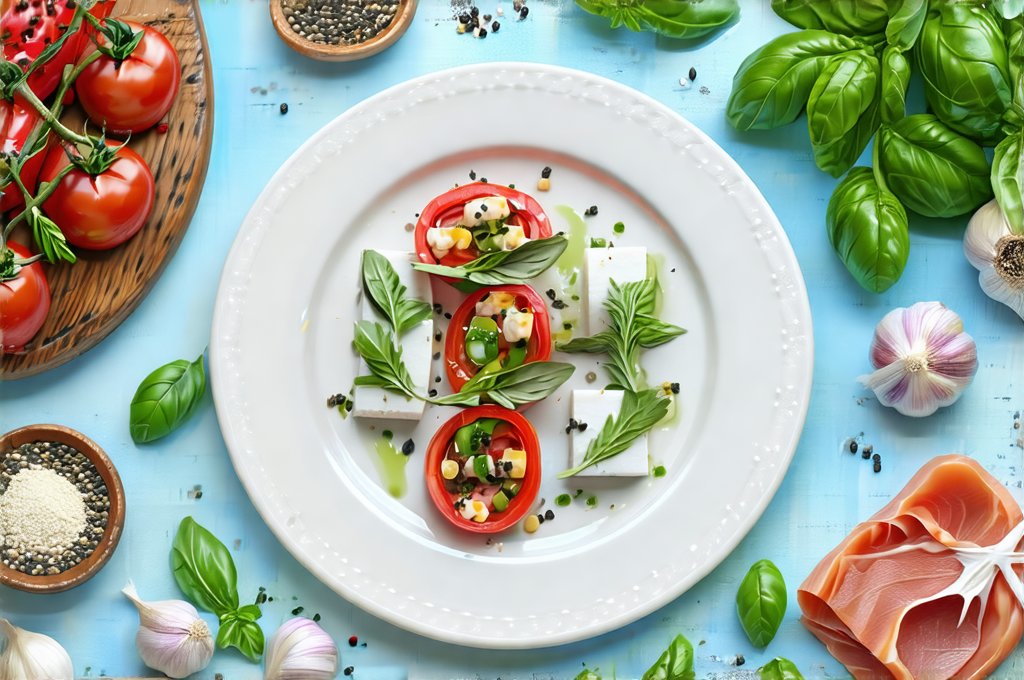The Mediterranean diet isn’t merely a dietary trend; it’s a lifestyle deeply rooted in the traditional eating habits of people living around the Mediterranean Sea – specifically regions like Greece, Italy, Spain, and Morocco. For decades, research has consistently linked this way of eating to numerous health benefits, ranging from improved heart health and cognitive function to reduced risk of chronic diseases. But what makes it so special isn’t restrictive rules or deprivation; it’s about abundance, flavor, and a mindful approach to food that prioritizes whole, unprocessed ingredients. It’s less about “dieting” and more about sustainable eating for long-term wellbeing.
The beauty of the Mediterranean diet lies in its flexibility and accessibility. It’s not about forbidding certain foods entirely but rather emphasizing particular food groups while enjoying others in moderation. This makes it a remarkably practical approach to nutrition – one that isn’t intimidating or difficult to incorporate into everyday life. Many individuals already consume elements of this style without even realizing it, opening the door for gradual and enjoyable shifts toward a more nourishing way of eating. It’s about building habits, not restrictions.
Core Components: Building Your Daily Plate
The foundation of a daily Mediterranean diet centers around plant-based foods. These aren’t simply side dishes; they are the stars of the show. Think vibrant salads, roasted vegetables drizzled with olive oil, hearty lentil soups, and flavorful bean stews. Fruits provide natural sweetness, while whole grains offer sustained energy. This emphasis on produce provides essential vitamins, minerals, antioxidants, and fiber – all crucial for optimal health. Beyond the plants themselves, consider the incredible diversity offered within each category. Experimenting with different varieties of tomatoes, leafy greens, or legumes will not only enhance flavor but also provide a broader spectrum of nutrients.
Olive oil is arguably the defining fat source in this dietary pattern. However, it’s more than just a cooking medium; it’s an integral part of the cultural experience. Extra virgin olive oil, specifically, offers potent health benefits due to its high concentration of monounsaturated fats and polyphenols. Use it generously for drizzling over salads, sautéing vegetables, or finishing dishes – but remember that even healthy fats should be consumed in moderation. Lean proteins like fish and poultry are included several times a week, while red meat is limited. This isn’t about eliminating meat altogether, but rather reducing its frequency to promote heart health and overall wellbeing.
Finally, dairy products are typically enjoyed in moderate amounts, often as yogurt or cheese. Nuts and seeds provide healthy fats, protein, and fiber, making them excellent snacks or additions to meals. Herbs and spices play a significant role too, adding flavor complexity while also offering potential health benefits. The Mediterranean diet isn’t about blandness; it’s bursting with taste!
Everyday Staples: Foods You Can Rely On
- Legumes: Lentils, chickpeas, beans – these are nutritional powerhouses, packed with protein and fiber. They can be incorporated into soups, stews, salads, or even mashed as a spread. Preparing them from dried is cost-effective, but canned options are convenient for busy weeknights.
- Whole Grains: Choose whole wheat bread, brown rice, quinoa, or oats over refined grains. Whole grains provide sustained energy and fiber, keeping you feeling fuller for longer. Experiment with different types to find your favorites!
- Fruits & Vegetables: A wide variety is key! Seasonal produce is often the most flavorful and affordable. Don’t be afraid to try new things – explore farmers’ markets or local grocery stores for inspiration.
These staples form the bedrock of a daily Mediterranean eating plan, offering versatility and nutritional value. They are readily available in most supermarkets and can be adapted to suit individual preferences and dietary needs. Preparing meals around these core components ensures that you’re consistently nourishing your body with wholesome foods. Remember to prioritize freshness whenever possible, but frozen options can also be a convenient alternative when fresh isn’t available.
Simple Swaps for Lasting Change
Making significant dietary changes doesn’t have to involve drastic measures. Often, it’s the small, consistent swaps that yield the greatest results over time. For example:
1. Replace butter with olive oil in cooking.
2. Swap sugary cereals for oatmeal topped with berries and nuts.
3. Choose grilled fish instead of fried chicken.
These seemingly minor adjustments can significantly impact your overall dietary pattern. Another effective strategy is to mindfully reduce portion sizes. Many people unknowingly consume larger portions than necessary, leading to overeating. Paying attention to hunger cues and stopping when you’re comfortably full can help regulate your intake. Furthermore, prioritize home cooking whenever possible. This allows you to control ingredients, reduce sodium and sugar content, and create healthier versions of your favorite dishes.
Hydration & Mindful Eating
Beyond the food itself, staying adequately hydrated is essential for overall health and wellbeing. Water should be your primary beverage choice; herbal teas are another excellent option. Limit sugary drinks and excessive caffeine intake. Equally important is practicing mindful eating. This involves paying attention to the sensory experience of food – its aroma, texture, and flavor – without distraction. Slowing down during meals allows you to savor each bite, recognize fullness cues, and appreciate your food more fully.
Mindful eating isn’t about restriction; it’s about cultivating a healthier relationship with food. It encourages us to listen to our bodies’ needs and make conscious choices that support our wellbeing. This holistic approach – combining nutritious foods, adequate hydration, and mindful consumption – is what truly defines the Mediterranean lifestyle and sets it apart from restrictive diets.




